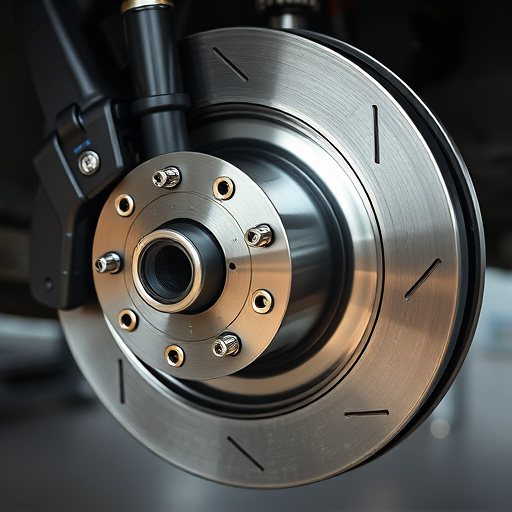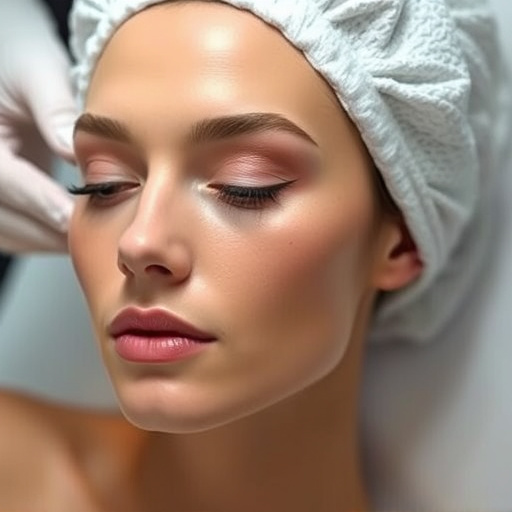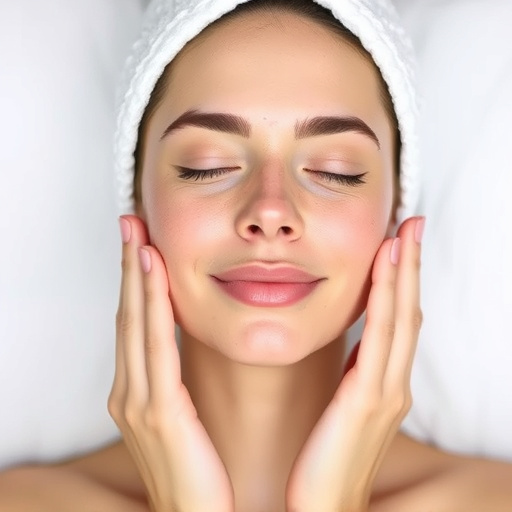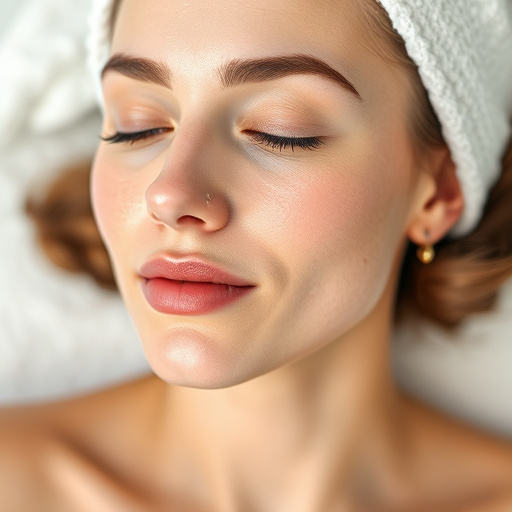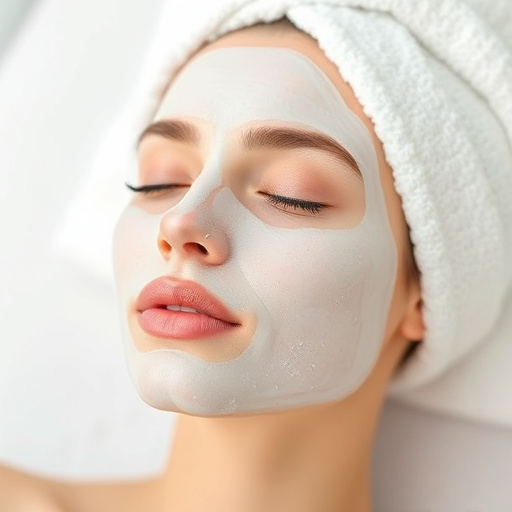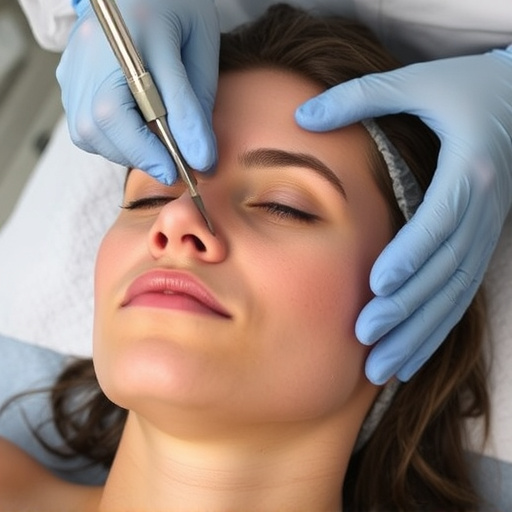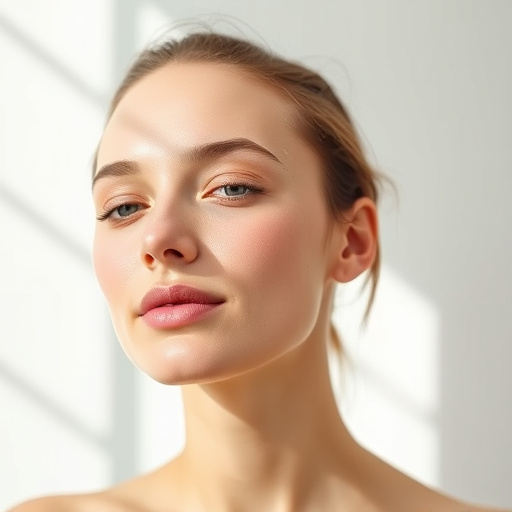Many skin texture issues arise from genetic factors, environmental exposure, aging, or conditions like acne. Skincare routines and non-surgical treatments like chemical peels, microdermabrasion, laser hair removal, and hydrating facials improve texture. Hydration is key for smooth skin; internal hydration plus external moisturizing products are essential. Advanced treatments like chemical peels and deep hydration with vitamin C enhance skin texture and elasticity for a radiant complexion.
Uneven skin texture can be a source of concern, but understanding the underlying causes is the first step towards achieving smoother, softer skin. This article delves into the common issues that lead to roughness, focusing on hydration and moisture as key factors. We explore advanced techniques for skin texture improvement, from topical treatments to innovative technologies, offering a comprehensive guide to help you achieve a radiant, smooth complexion. Discover how these strategies can transform your skin’s landscape.
- Understanding Common Skin Texture Issues
- The Role of Hydration and Moisturization
- Advanced Techniques for Skin Texture Improvement
Understanding Common Skin Texture Issues

Many people struggle with various skin texture issues that can impact their overall appearance and confidence. Common concerns include roughness, dryness, and an uneven surface. These problems may be caused by a range of factors such as genetic predisposition, environmental exposure, aging, or specific skin conditions. For instance, certain types of acne can leave scars and imperfections, affecting the skin’s texture over time. Additionally, harsh weather conditions, like excessive sun exposure or cold, dry air, can deprive the skin of moisture, leading to dryness and roughness.
Skincare routines play a vital role in addressing these challenges. Skin texture improvement involves a multi-faceted approach. Non-surgical treatments like chemical peels and microdermabrasion are effective in exfoliating dead skin cells and revealing smoother layers beneath. Laser hair removal can target unwanted body hair, reducing the appearance of roughness caused by ingrown hairs. Furthermore, hydrating facials infused with rich moisturizers provide intense nourishment to alleviate dryness and restore a softer texture.
The Role of Hydration and Moisturization

Hydration is a fundamental aspect when it comes to achieving and maintaining smooth, supple skin. The skin’s natural moisture barrier plays a crucial role in protecting against environmental stressors and keeping the skin looking vibrant and healthy. When the skin becomes dehydrated, it can result in roughness, flakiness, and even irritation. Adequate hydration from within is essential, but external care through moisturizing products is equally vital. Applying moisturizing creams or serums helps to lock in humidity, plumping up the skin cells and enhancing overall skin texture improvement.
Regular hydrating facials at a medical spa can also be beneficial. These treatments often incorporate specialized products and techniques to deeply nourish the skin, leaving it feeling rejuvenated and looking more radiant. Non-surgical treatments, such as microdermabrasion or chemical peels, can further assist in exfoliating dead skin cells and promoting the generation of new, smoother skin cells, contributing to overall skin texture improvement.
Advanced Techniques for Skin Texture Improvement

In the pursuit of achieving smooth, radiant skin, many people turn to advanced techniques for skin texture improvement. Modern aesthetics have revolutionized skincare with innovative treatments that go beyond traditional methods. One such game-changer is chemical peels, which involve applying chemicals to the skin to remove dead cells and stimulate new growth. This process can significantly enhance skin texture, reducing the appearance of fine lines, wrinkles, and uneven tones.
Additionally, various aesthetic treatments focus on deep hydration and nutrient delivery to restore skin elasticity. These procedures often combine ingredients like vitamin C for skin brightening and other antioxidants to protect against environmental damage. By addressing specific concerns, these advanced techniques not only improve skin texture but also contribute to a more youthful and aesthetically pleasing complexion.
Rough skin can stem from various factors, including dehydration, environmental exposure, and underlying skin conditions. Through a combination of hydration, targeted moisturizing, and advanced techniques like chemical peels or microdermabrasion, you can achieve significant improvements in skin texture. Prioritizing regular care routines and using suitable products for your skin type is key to maintaining smooth, radiant skin over time, enhancing your overall appearance and self-confidence. Embrace the benefits of skin texture improvement for a healthier, more youthful complexion.




